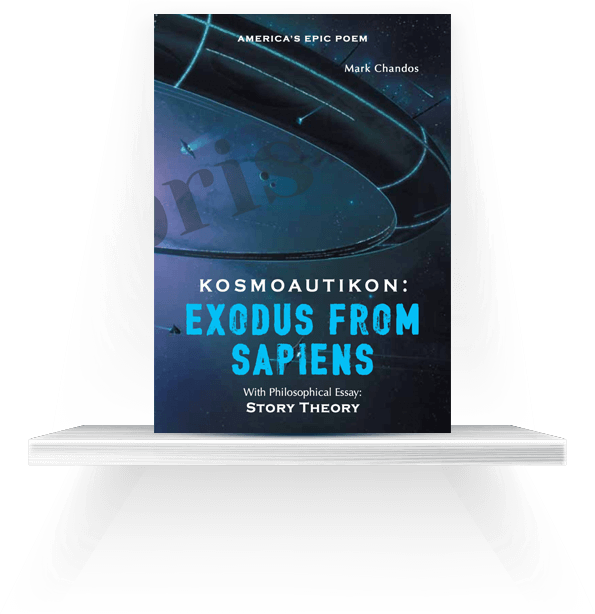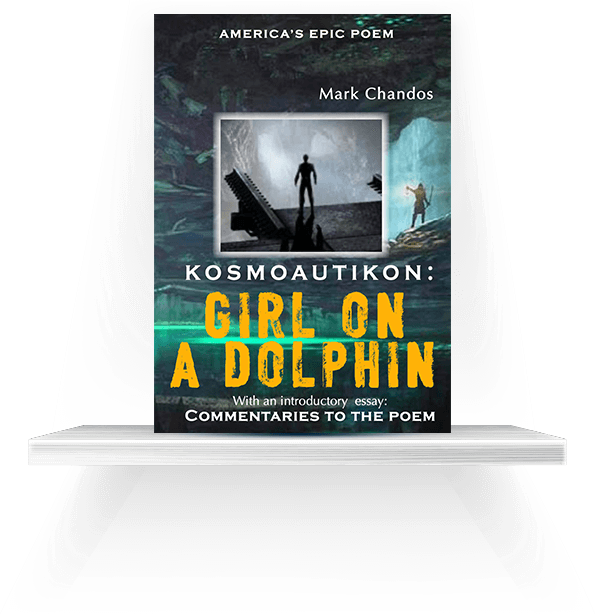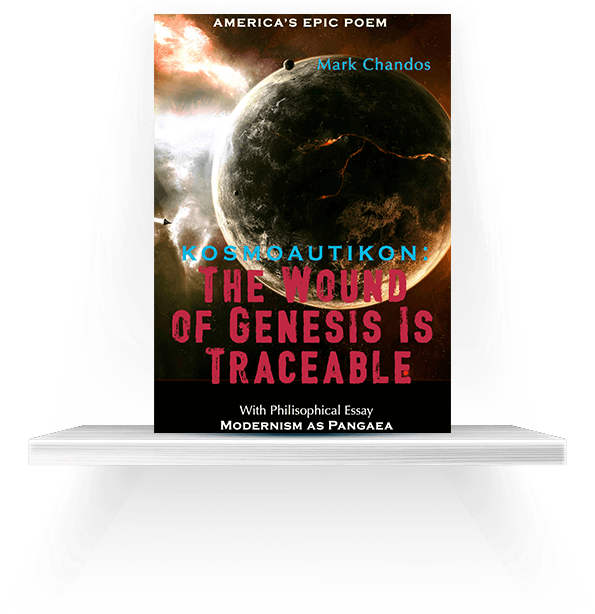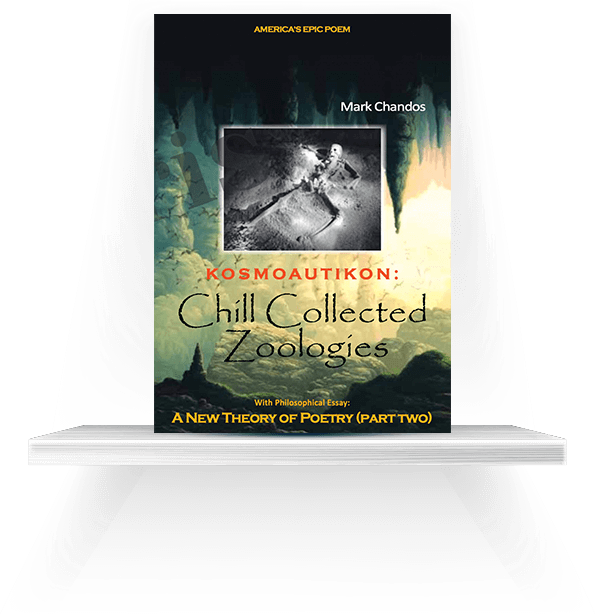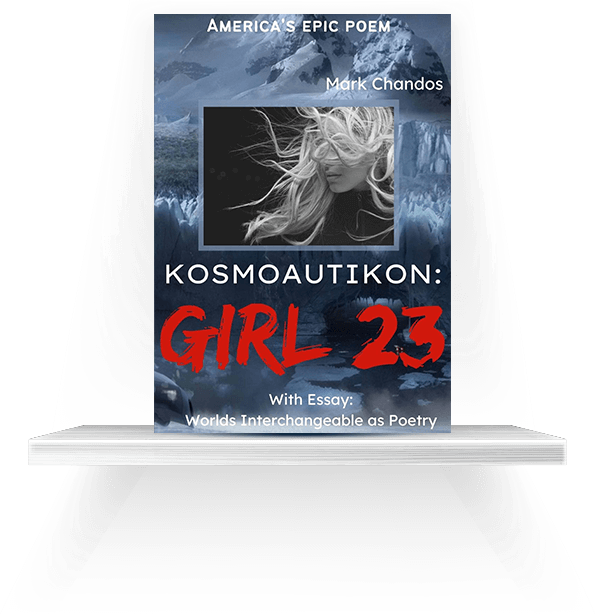Imagery vs. Written Word: Which One Will Save Humanity?

Imagery vs. Written Word: Which One Will Save Humanity?
Modern civilization makes a one-way voyage of discovery. What any epoch finds permanently marks it out as unique. Gloriously, any given culture discovers one true thing. The Greek, Roman and Anglo-American empires found one true thing – a global Western civilization that cut across all other indigenous cultures. Any people touched by these world empires were remade in their image. Likewise, no indigenous nation has successfully resisted Western modernism.
Yet modernism is unexamined as a thing in itself. Modernism is presupposed – it is assumed. This means that no modern writer can speak about modernism – outside the context of modernism. Modernism is so all-consuming, so Leviathan, so pervasive that its good and evil cannot be seen with circumspection. If one is firmly ensconced in modernism, he cannot see the leviathan structure as a whole. He must stand apart – at a far distance – to observe the full outlines of the Colossus. Only then the myopic observer sees the horror of the alien pillars and the black talons.
What the modern reader needs above all else, therefore, is book that is as far from modern models, mediocrity, and clichés as possible. There should be a book that surprises, shocks, or stuns the modern. That is the story of Kosmoautikon.
Every civilization is worthy by the standards of its own tokens. Each finds one true thing. A civilization’s discovery of one true thing represents a brilliant achievement of the human mind. Yet a great price has to be paid. There is no going back, no return, from this one-way journey. Every human civilization is replaced by its nemesis. No brick will be left upon another.
So what is modernism? Modernism is a grand voyage. Anglo-American culture has unearthed what no other human civilization has found: Pangaea – the World Island. Anglo America invented television and the computer. These became global tools of mind invasion. The entire earth is now one vast cultural land-mass. The proliferation of modernism has achieved the total exploitation of the globe with technology. Today, there is no escape from technology, global screens, capitalism, electricity, pornography, or science.
The arrogance of this civilization is breathtaking. Globalism is a capitalistic world subsuming all non-modern, indigenous cultures. It is assumed that all non-modern cultures must surrender without conditions – surrender to ideas developed in New York, Chicago, London, and Los Angeles. There was very little negotiation. Japan, Vietnam, Korea, and China surrendered in one generation.
The earth is now a single electrified supercontinent without borders, looking like America, and speaking Global English. This is Pangaea.
No individual on the planet can hide, shelter, or find sanctuary from Pangaea. The same cheap plastic tennis shoe is sold in Asia, Cincinnati, Rome, and Egypt. The same fashion of modern dress, the same brands of modern electronics, the same undergarments or perfume are sold in every glass mall from Dubai to London, to Johannesburg, to Las Vegas. The same business suit or military uniform is found in all nations of the globe – as if they all had the same tailor. The same architecture of modern engineering, the same skyscrapers, the same sports stadium is copied in new modernist metropolises built overnight in Beijing, Hanoi, Dubai, or Tehran – designed by a Western architect. Foreign nations have no choice: in order to enter modernism, they have to find a way to look like America or Western Europe (where America takes its cultural alphabet).
Western tastes are not indigenous to other peoples in the world. No American fashion or invention is organic. Modern tastes are imposed by hegemonic ideas of American modernism. This betrays a simple fact: whoever controls the World Metaphor controls the World Island. There are no hidden, remote places from Pangaea. There is only a single World Island under 24/7 electronic surveillance – and they all watch the same screens.
In Story Theory, this is an opportunity – and a challenge – for the strong poet. Modernism frames the World Image (human culture) and ruthlessly controls the World Island (Pangaea) using global English. Modernism, itself, may turn out to be useless to the poet. Global English is the treasure he seeks.
If a poet’s device is strong, if his language rises to the level of its content, he can reach every human living. This is the glittering star dangling before the poet. His information can never be eradicated. This is the prize of Pangaea. The language of Pangaea can reach the outer galaxies.
The strong poet, a visitor to earth, watches as the dark summation of modernism is approaching. The modern may certainly make a list of his favorite conveniences of technology. Yet there is one fact to cancel the euphoria of science: every new technology introduces its own legion of unsolvable problems. Example: how does powdered food help the masses of over population? Cheap processed food only allows for more unsupportable populations. With globalism, how many cities can be hollowed out with loss of employment to machines and overseas workers? How many immigrants can a nation take in without losing its original cultural identity – or religious traditions? It turns out there are limits. Or is there anything traditional left worth fighting for? My eyes meet yours as the question forms.
Story Theory exposes how modernism sterilizes the human condition. In most cultures, traditionally, the poet asks difficult questions. What is modernism? Is it merely everything we now know and believe? What if we are wrong about our assumptions? More to the point, is modernism the final idiom of Homo sapiens or merely a civilization that will be replaced – like all other civilizations?
There is only one answer. Modernism will be replaced. Western liberalism, a brief bubble in time, will be superseded. Liberal democracies are always caught out – never prepared, always surprised by sudden violence – stupefied by gods, armies, nature, and rogue males making conquests of their homelands.
Great Greece never saw the Romans coming. Rome never saw the possibility of Christianity. Christianity never saw the danger posed by science. Science, like modernism, does not now see what is coming for it.
Rarely in literature has “modernism” been examined as a problem in itself. The problem is impossible, to the modern observer everything is modernism. When a modern looks at a problem he sees only the solutions afforded by the same idioms of modernism. That’s a weakness.
Modernism in, modernism out.
In Story Theory, modernism is identified by screen or image culture. Television did it first – in the 1950s. Modernity is not only the sum of industrial capitalism. We forget that capitalism, industry, technology, and rationality (science) existed before modernism and will still exist after modernism. What preeminently identifies modernism is the fact that all peoples of Pangaea are watching the same screens. This changes everything in the mind of Homo sapiens.
If modernism, so defined, is a screen culture – and these images are our only means of emotive information – how does this touch the rational alphabet culture of writing? The Greeks first introduced rationalism (via the new form of alphabet writing) in the West in 7th century BC.
Modernism, now, in turn, is reversing the stability of previously rational societies – that is, a Western society (until the 1950s) controlled by an education system based on human knowledge handed down in a rational book culture (i.e., the alphabet). That’s all changed now.
The issue we face is irrationality. Modernism is becoming more irrational by the moment. A single modern screen image can turn around historical events. It can start or stop wars in a moment – but the same image may not even be real. This process makes the phenomena of screens irrational.
Just because an image is on television, people believe the screen totem is not only real – but it has authority. People do not think (rationalize) when they see an image on a screen, they have an emotional response. In fact, the image has no reality and no context. Modern screen culture has only an imagined reality and context. That is, modernism is imagistic – like a poem is imagistic. Previous to television (screen culture), modern technology was based on rational use of alphabets (book learning) – piled one generation upon another. Now image culture has dominant power over the rational content of book culture (laws, science, constitutions, etc.)
And the images are now made in an instant – not generation upon generation.
This revolution – the power of the image over content – changes the value of the written word. When the alphabet (rationalism) is under attack, the written word is under attack.
An image culture (versus a previous alphabet culture) changes how we are governed in democracies – a transition from deliberate, rational debate – to instantaneous mass emotion. Previous to the screen age, the great democracies were built and sustained on written laws – as defined by great lawmakers (Solon, Justinian, Napoleon, Jefferson, Lincoln, Franklin, etc.). In contrast, the image (as information) now allows each person to be an irrational “fan”…a lawmaker, an expert, a radical, or an insurgent.
You want to end a war, or change a law? One needs only find (or make, or alter) an image and post it on global screens. In Story Theory, the experience of freedom alters with every new revolution of the means of information.
What if, darkly, the screens watch and listen to humans? Who owns a human’s individual data? The person? It turns out – no. We do not control our own information. How much of a citizen’s data can the government electronically monitor? It turns out, the answer is everything. How much of our information can it store to be used in the future by another, more hostile, form of popular government? It turns out everything can be used against us.
The end result of modernism is total surveillance of the individual, with the certain and total loss of individual autonomy. Freedom of movement without government surveillance is no longer a choice. It is not even freedom.
This affects the poetry we write in Pangaea, and underlines the dire importance of the rebirth of rationalism via the written word.
It is for this reason that the Kosmoautikon cycle exists.

